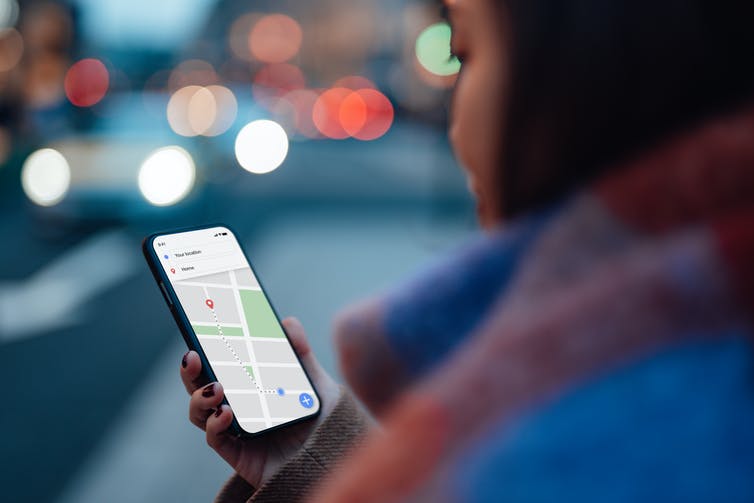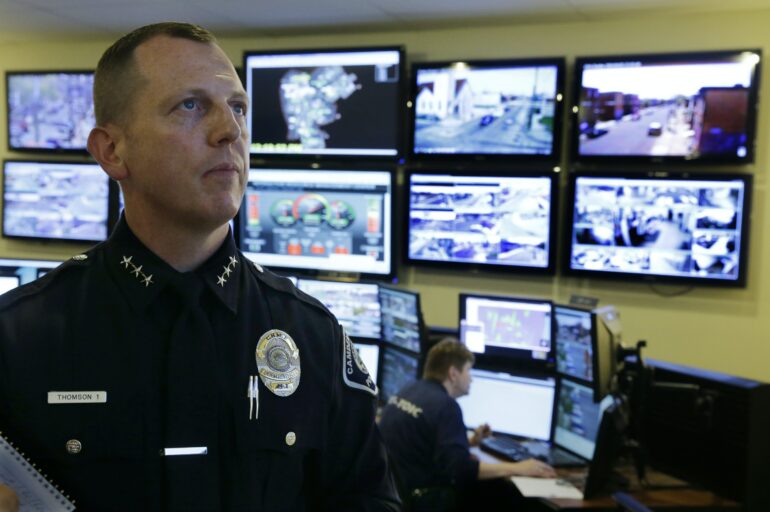The U.S. has the largest number of surveillance cameras per person in the world. Cameras are omnipresent on city streets and in hotels, restaurants, malls and offices. They’re also used to screen passengers for the Transportation Security Administration. And then there are smart doorbells and other home security cameras.
Most Americans are aware of video surveillance of public spaces. Likewise, most people know about online tracking – and want Congress to do something about it. But as a researcher who studies digital culture and secret communications, I believe that to understand how pervasive surveillance is, it’s important to recognize how physical and digital tracking work together.
Databases can correlate location data from smartphones, the growing number of private cameras, license plate readers on police cruisers and toll roads, and facial recognition technology, so if law enforcement wants to track where you are and where you’ve been, they can. They need a warrant to use cellphone search equipment: Connecting your device to a mobile device forensic tool lets them extract and analyze all your data if they have a warrant.
However, private data brokers also track this kind of data and help surveil citizens – without a warrant. There is a large market for personal data, compiled from information people volunteer, information people unwittingly yield – for example, via mobile apps – and information that is stolen in data breaches. Among the customers for this largely unregulated data are federal, state and local law enforcement agencies.
How you are tracked
Whether or not you pass under the gaze of a surveillance camera or license plate reader, you are tracked by your mobile phone. GPS tells weather apps or maps your location, Wi-Fi uses your location, and cell-tower triangulation tracks your phone. Bluetooth can identify and track your smartphone, and not just for COVID-19 contact tracing, Apple’s “Find My” service, or to connect headphones.
People volunteer their locations for ride-sharing or for games like Pokemon Go or Ingress, but apps can also collect and share location without your knowledge. Many late-model cars feature telematics that track locations – for example, OnStar or Bluelink. All this makes opting out impractical.

Your phone knows where you are, and that information can readily make its way from apps to data brokers and on to law enforcement.
Oscar Wong/Moment via Getty Images
The same thing is true online. Most websites feature ad trackers and third-party cookies, which are stored in your browser whenever you visit a site. They identify you when you visit other sites so advertisers can follow you around. Some websites also use key logging, which monitors what you type into a page before hitting submit. Similarly, session recording monitors mouse movements, clicks, scrolling and typing, even if you don’t click “submit.”
Ad trackers know…
